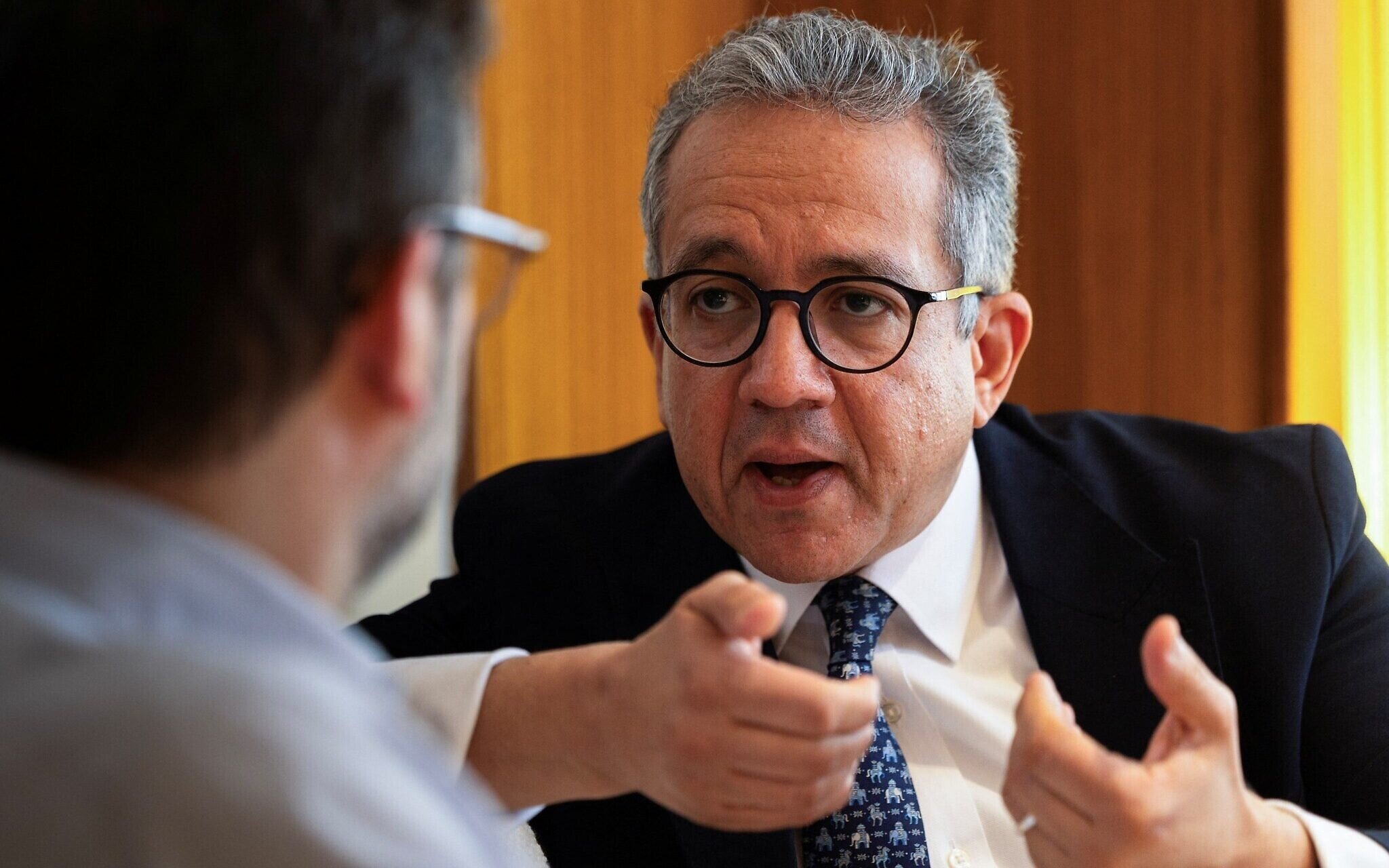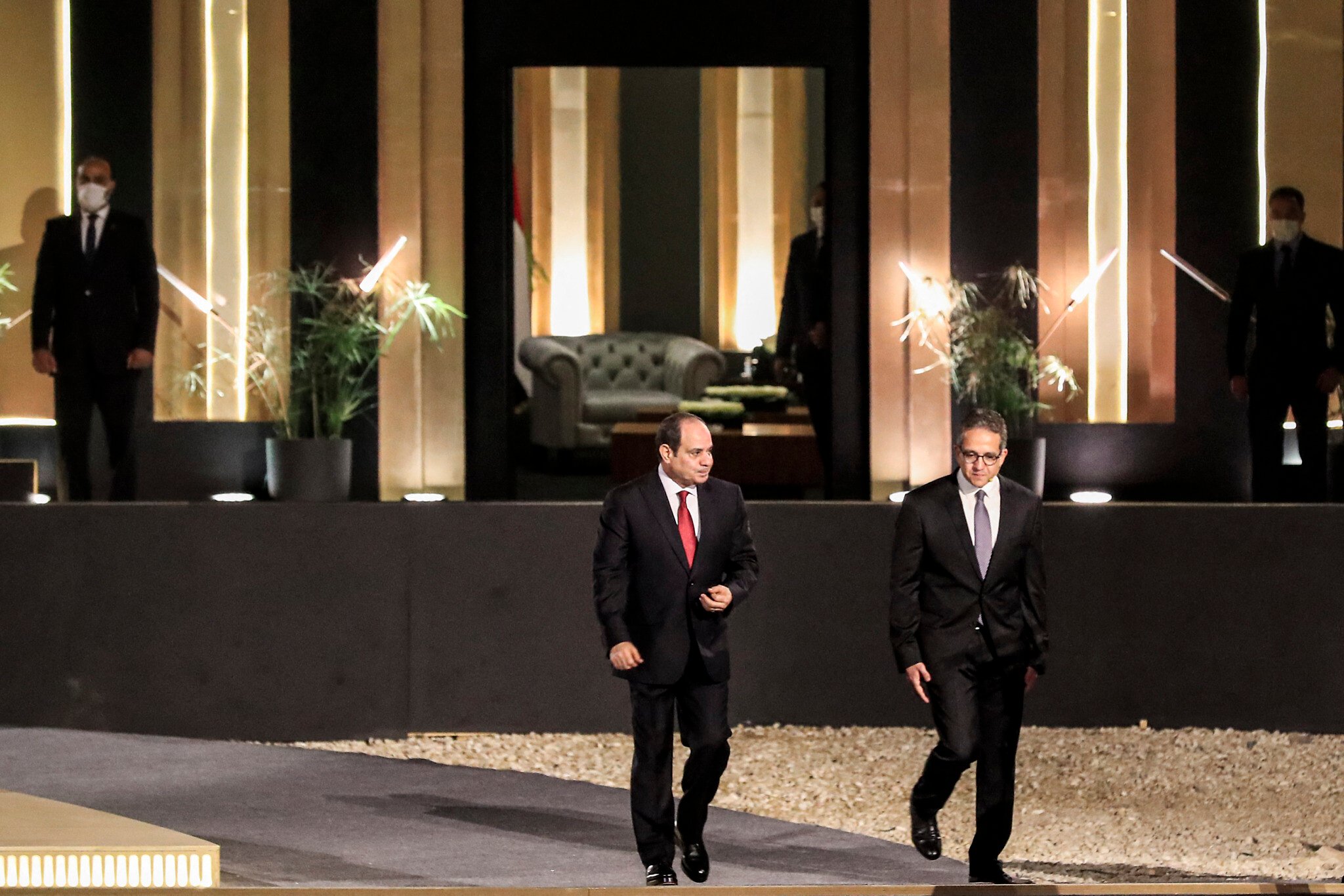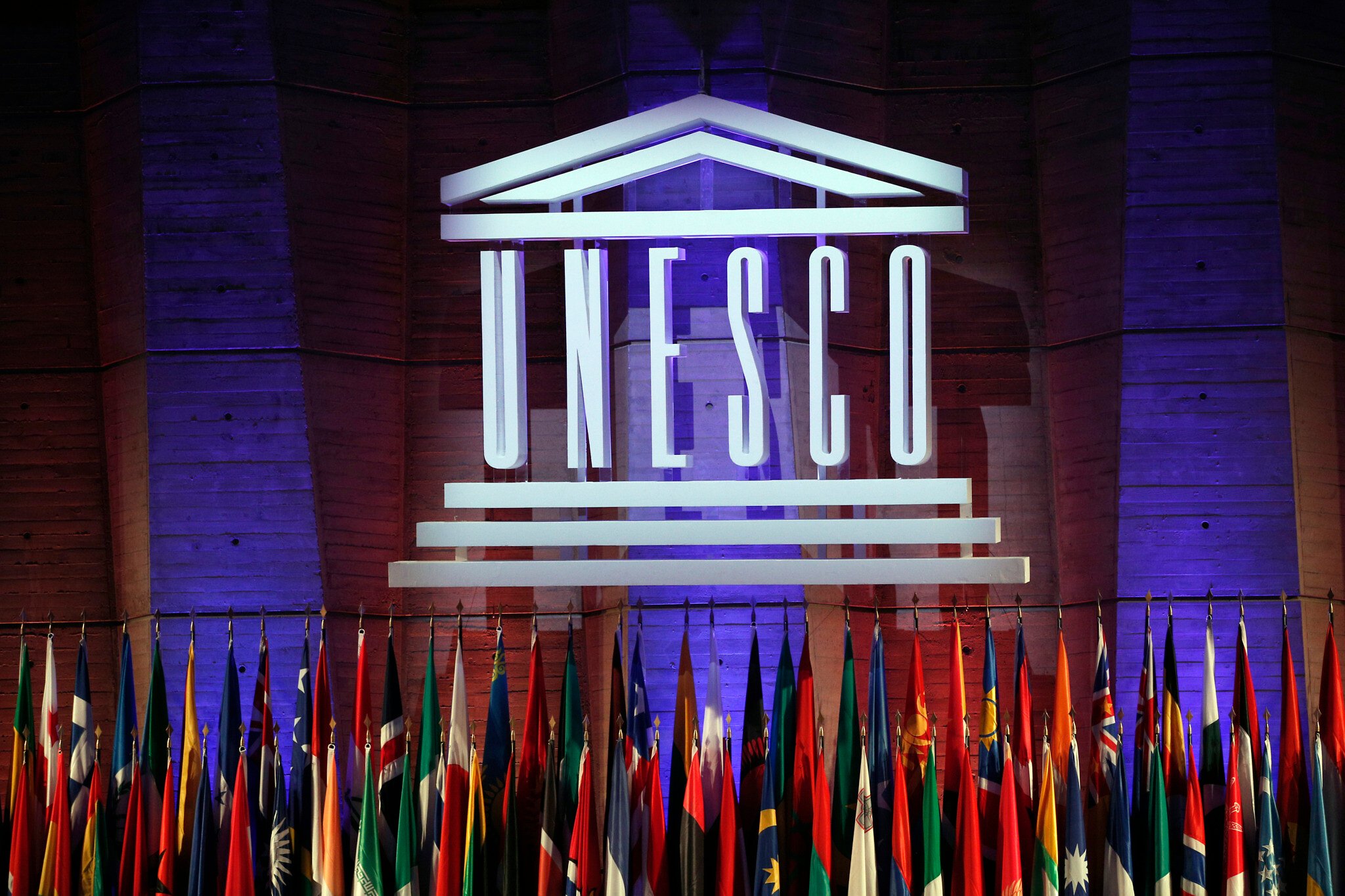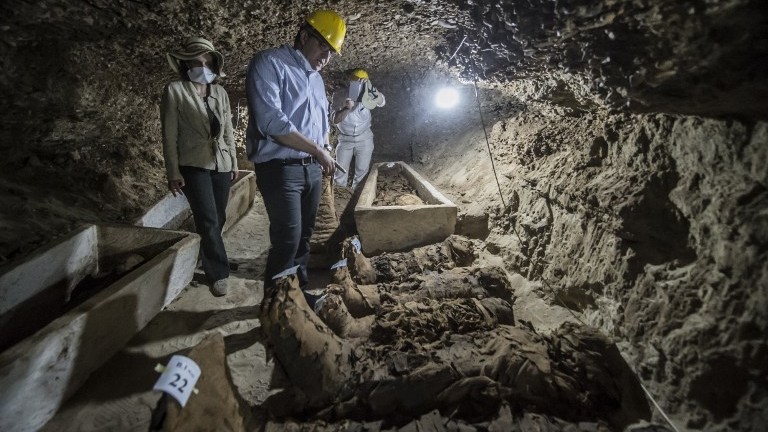


UNESCO executives voted Monday to make an Egyptian ex-antiquities minister the UN culture body’s next leader, as it grapples with accusations of anti-Israel bias that prompted the United States to say it would quit the organization.
The board voted to appoint Khaled el-Enany, Egypt’s former antiquities and tourism minister, to replace French director-general Audrey Azoulay after her two four-year terms in office.
The United States did not take part in the vote, having announced its future withdrawal from the organization, which is best known for designating world-famous heritage sites.
Enany, 54, has said he would seek to bring back the United States — which contributes eight percent of UNESCO’s overall funding — into the organization.
“The current challenge is the budget. That is going to be the priority of all of us,” he told reporters after the vote.
He said he would strive for “technical” deliberations in UNESCO “rather than the politicization of the organization.”
Egyptian President Abdel Fattah al-Sissi issued a statement speaking of a “historic success” for his country and wishing Enany the best for his “noble mission.”
Azoulay — the first Jew to hold the position — notably led a high-profile effort to rebuild the ancient Iraqi city of Mosul after it was devastated by the Islamic State group.
The United States announced in June that it would leave UNESCO, saying it was biased against Israel and promoted “divisive” causes.
That move, set to take effect at the end of 2026, will deal a major blow to the agency’s finances.
US supporters of UNESCO, meanwhile, say withdrawing Washington’s support allows China to play an outsized role in the world body.
Israel has accused the organization of being biased against the Jewish state and of diminishing its connection to the Holy Land. Israel also objected to UNESCO’s acceptance of Palestine as a member state.
Only two candidates were in the running for the top job after a Mexican contender backed out in August.
Enany faced off against the Republic of Congo’s Firmin Edouard Matoko, who had served as UNESCO’s de facto foreign minister until March.
Enany oversaw antiquities, and later also tourism, from 2016 to 2022 under Sisi.
Since announcing his bid more than two years ago, he claimed to have visited 65 countries, meeting 400 people over 30 months on the campaign trail.
If his nomination is confirmed, he will take office on November 14 as UNESCO’s first director-general from an Arab country and the second from an African nation, after Senegal’s Amadou Mahtar Mbow, who served from 1974 to 1987.
Enany won 55 of the 57 votes cast, said the board’s chair, Vera Lacoeuilhe.
The organization’s general assembly must now ratify his appointment during its meeting in Uzbekistan on November 6.
The body has never gone against a recommendation by the executive board, which is made up of representatives from 58 of the 194 member states.




